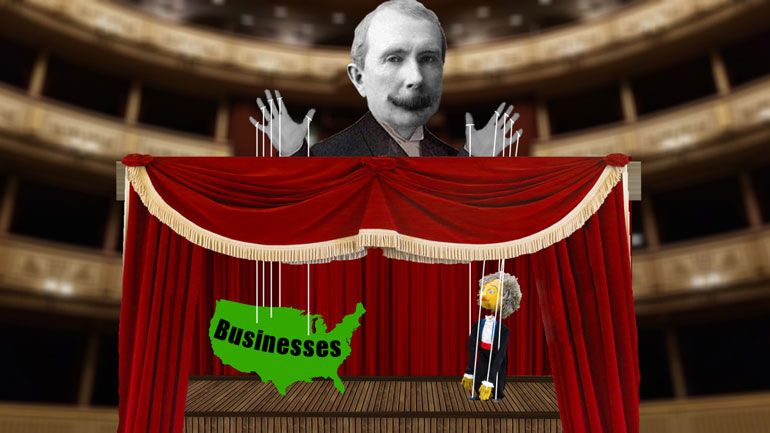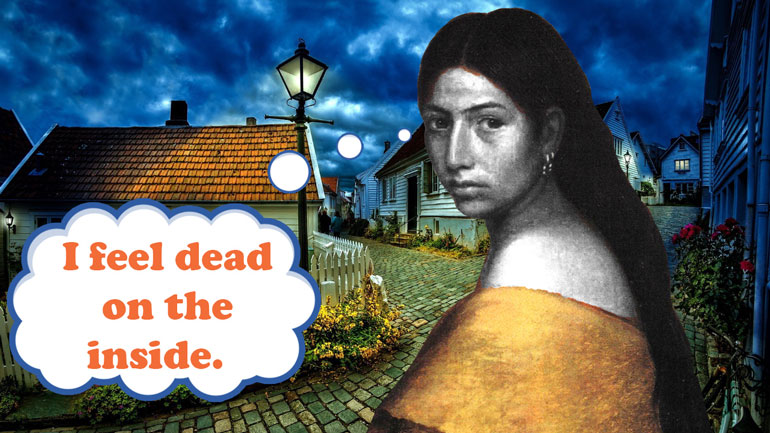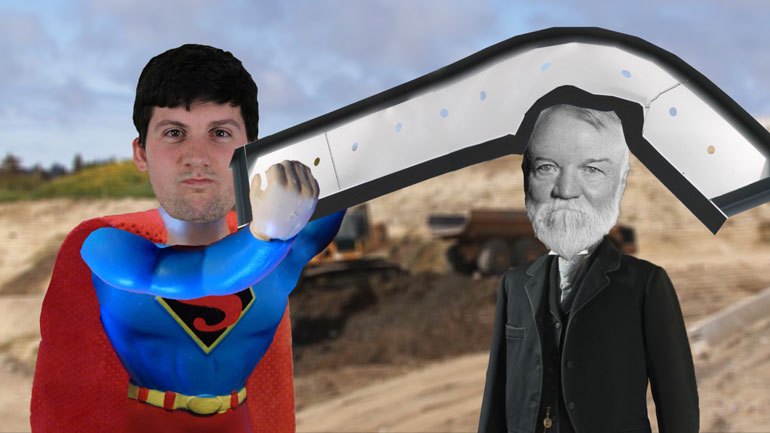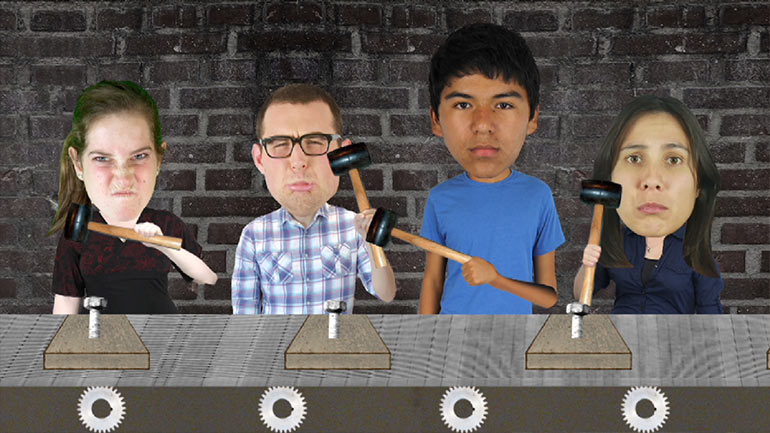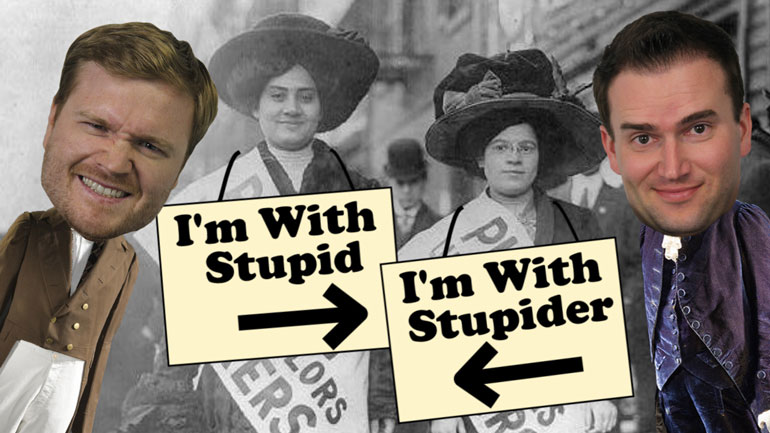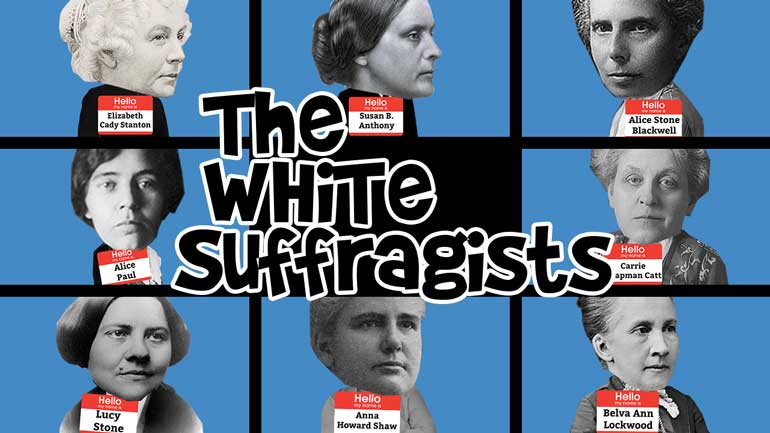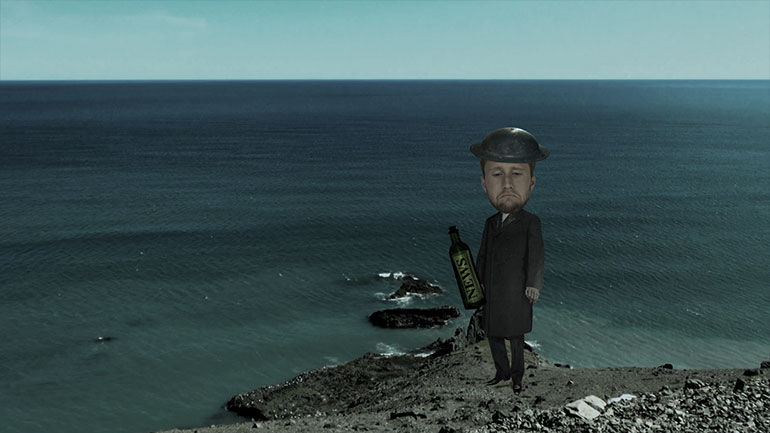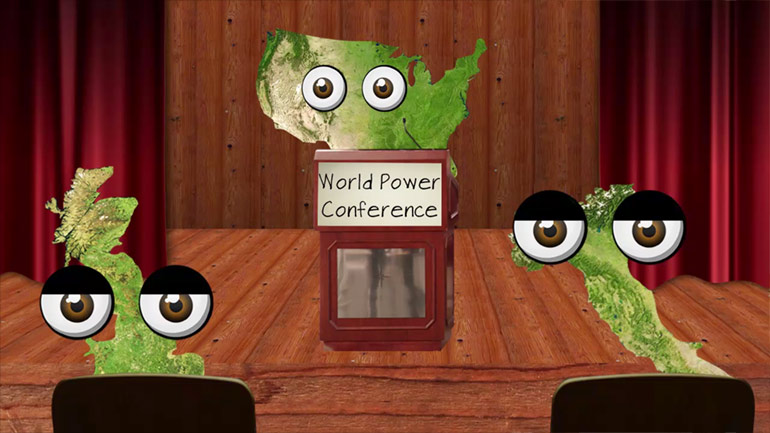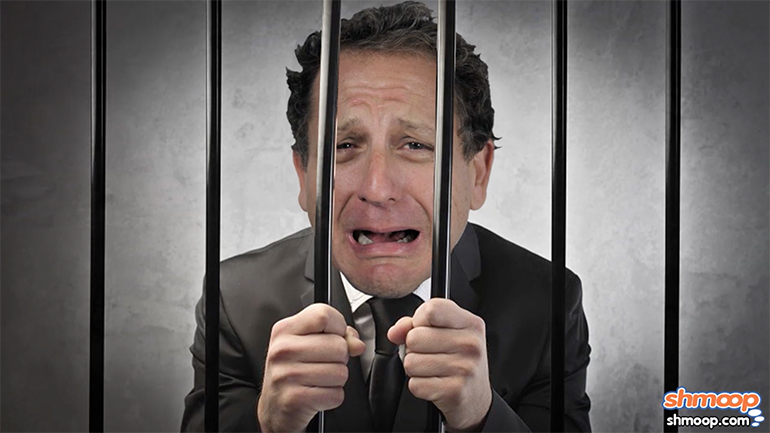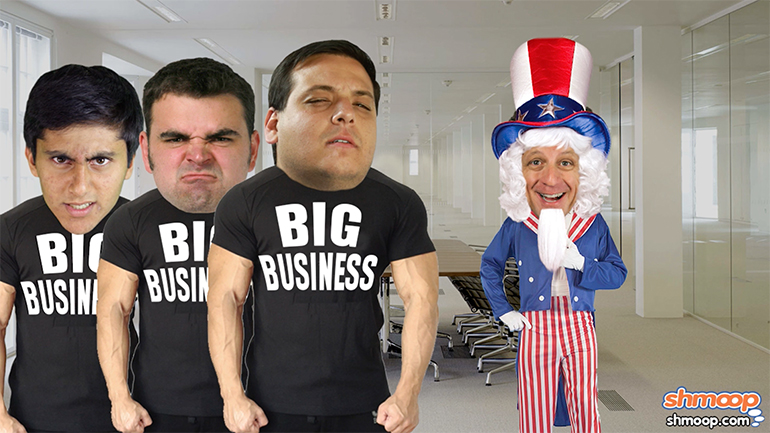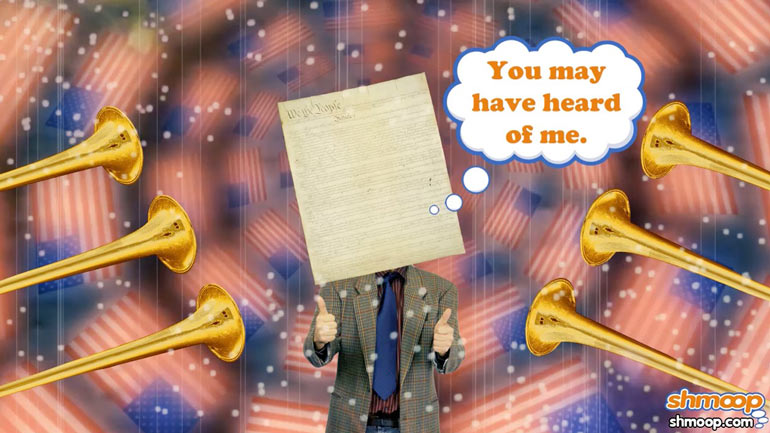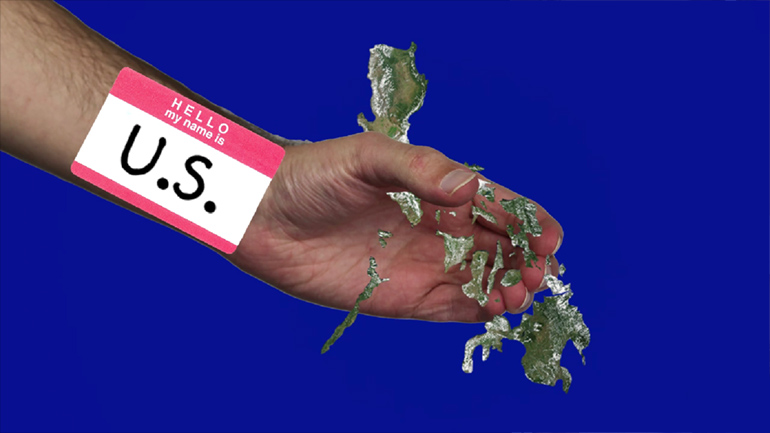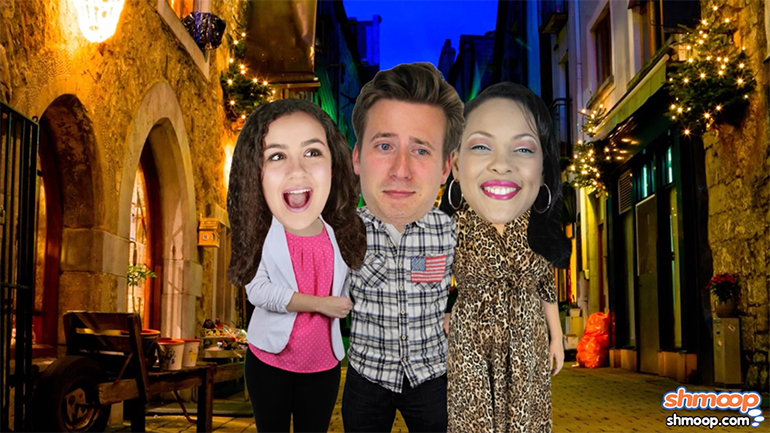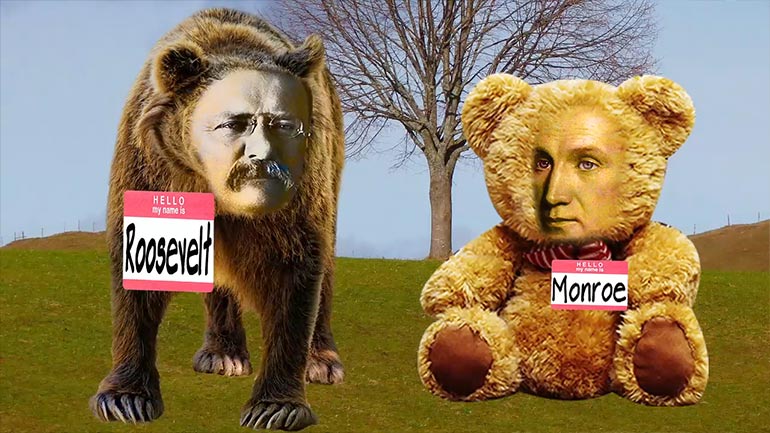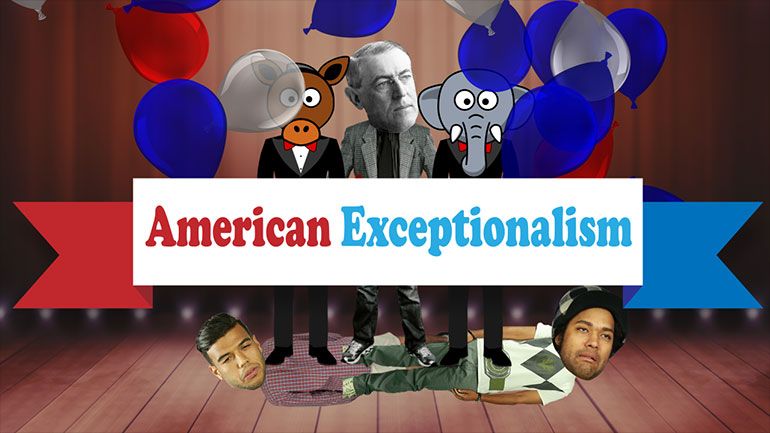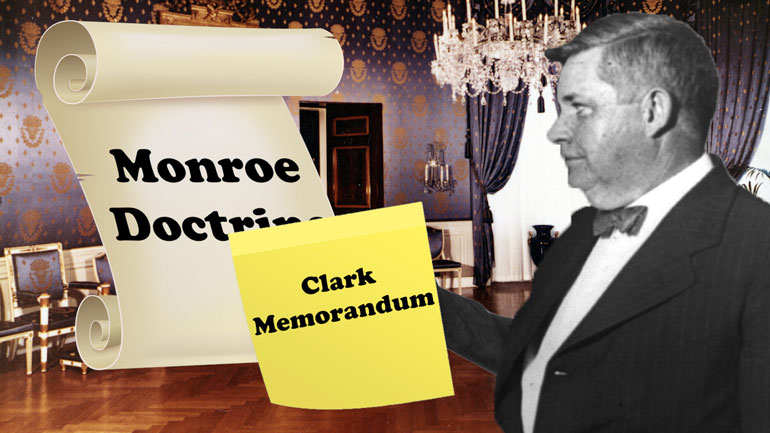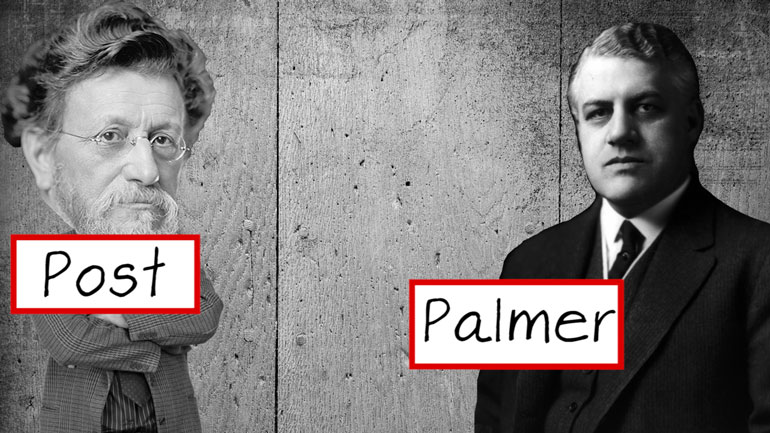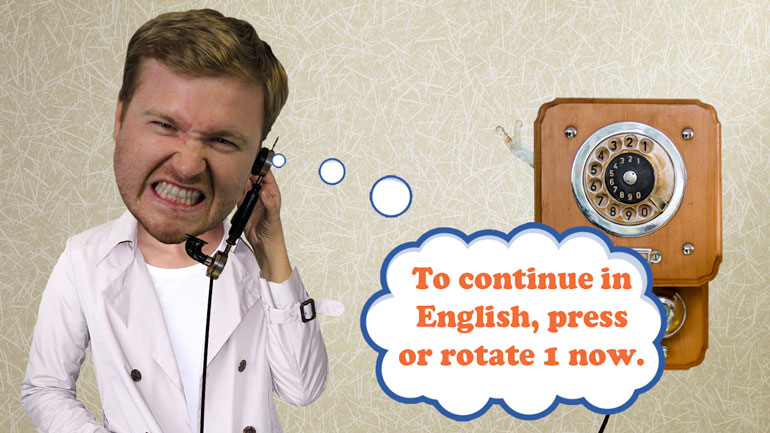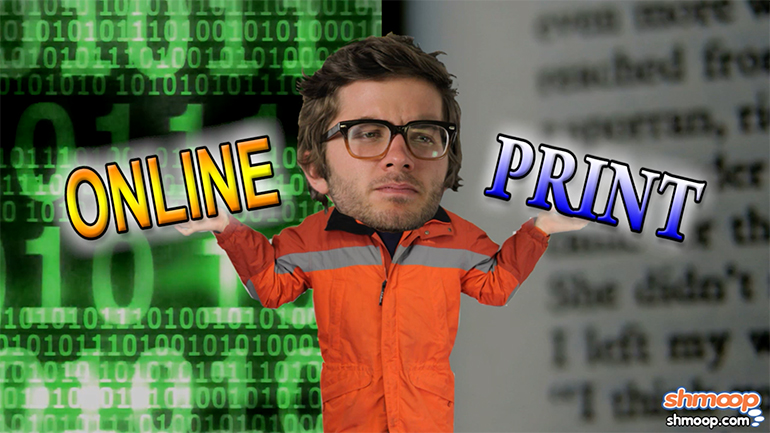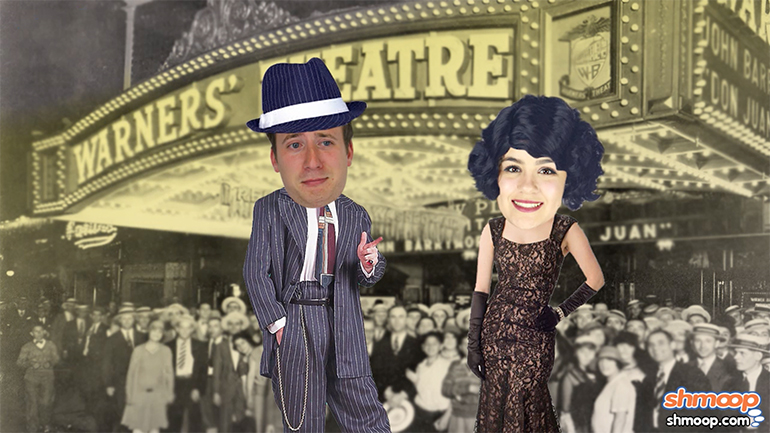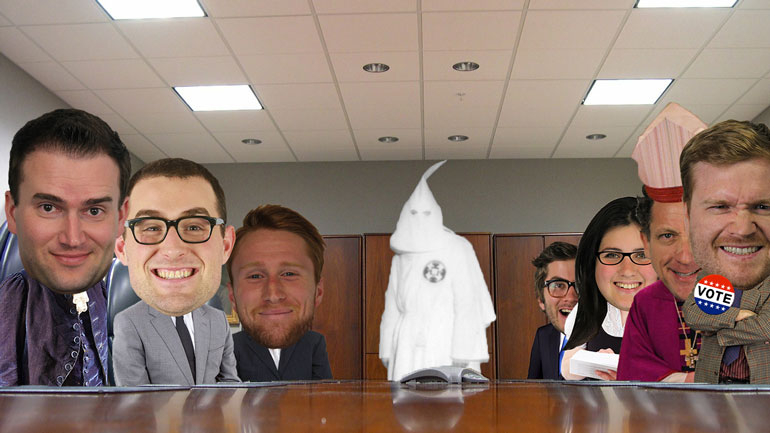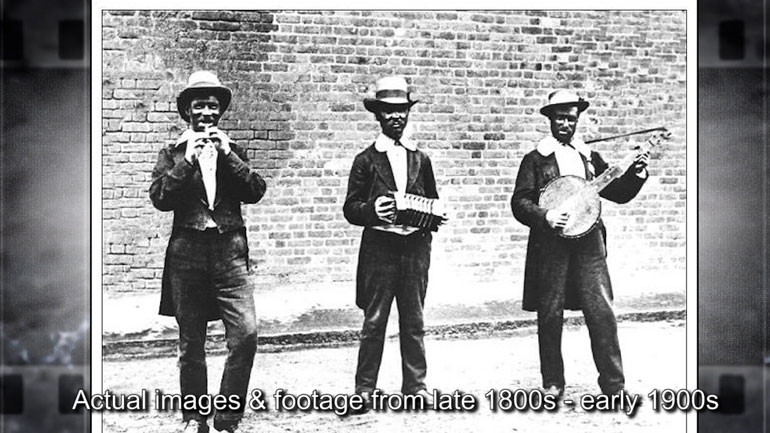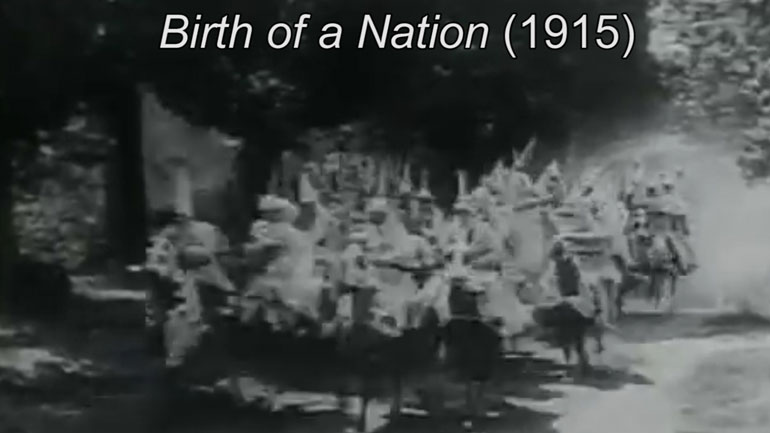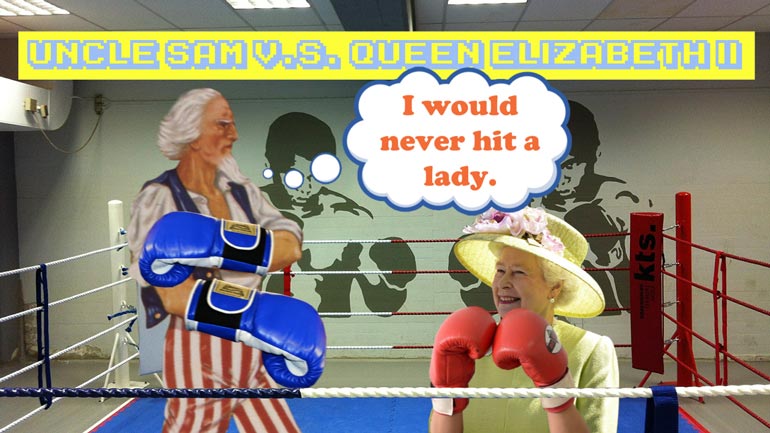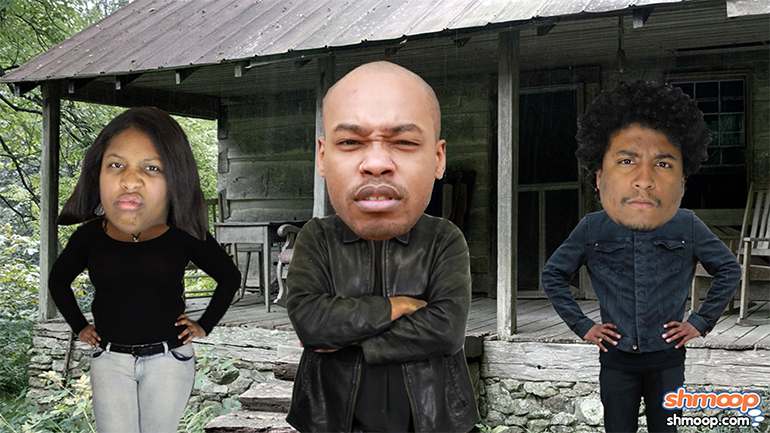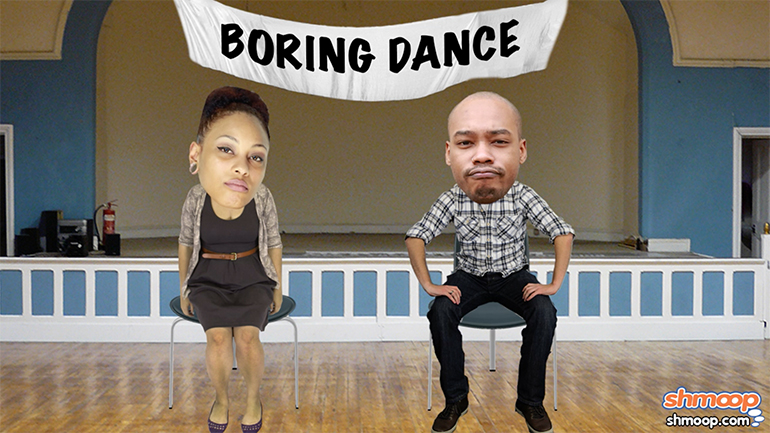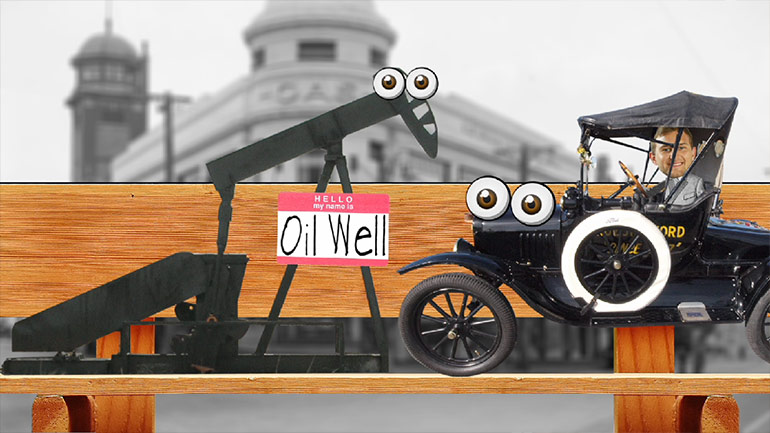ShmoopTube
Where Monty Python meets your 10th grade teacher.
Search Thousands of Shmoop Videos
U.S. History 1877-Present Videos 173 videos
Have you ever told one of your siblings to stop poking you, only to have them do something like hold their hand right in front of your face instead...
John D. Rockefeller. Greasy robber baron, or philanthropic saint? Why not both? Boy, that's a weird combination...
Today we'll learn about plans to assimilate the American Indian population after reconstruction. If you've ever seen Star Trek, you'll know that fo...
U.S. History 1877-Present 1: Evaluating Sources 172 Views
Share It!
Description:
If you're writing a paper on farming, it's best to make sure your source was written by an expert in the field. Today we'll learn about sorting the good sources from the bad, and remind you once again that you can't believe everything you read on the internet.
Transcript
- 00:00
Edited at https://subtitletools.com
- 00:03
The internet is a glorious place,
- 00:05
but it's also an icky pit of misinformation, [Images of internet warning, Grumpy cat, and Justine Bieber rises from the pit]
- 00:08
propaganda, and straight-up lies.
- 00:10
Sending somebody to the internet to research...
Full Transcript
- 00:13
without giving them the tools to evaluate...
- 00:15
what they're reading is kind of like sending someone to climb Mount Everest... [A guy in swimming attire slides down from a mountain]
- 00:18
in swim trunks and flippers. It's just not...
- 00:20
right. But when we're doing academic...
- 00:23
research, we have to make sure our sources... [A pop singer pops up and starts dancing in library]
- 00:25
are legit.
- 00:26
Now how can we tell?
- 00:27
First of all, we have to make sure the materials are written by...
- 00:29
recognized experts in their field.
- 00:31
Somebody's Uncle Steve might have fifteen... [Uncle Steve monitors work on the construction site]
- 00:33
years of experience in H bak repair,
- 00:35
but that doesn't make in an expert in mechanical engineering.
- 00:38
An expert in something generally,
- 00:40
has multiple degrees in their field... [Gary Smith is very happy to have so many degrees]
- 00:42
and a whole bunch of publication trailing...
- 00:44
in their name.
- 00:45
Also, we have to make sure the materials underwent a...
- 00:47
process of peer review.
- 00:49
This means that other experts in the field [A team of experts discuss the issue]
- 00:51
powwowed about a piece of writing
- 00:53
before it was published.
- 00:54
Not much stuff online goes through...
- 00:56
this process, so beware.
- 00:58
Unless we're talking primary sources, using materials... [Bunch of old magazines and books pop up on the screen]
- 01:00
that are reasonably recent,
- 01:02
well that could also be important, that doesn't mean...
- 01:04
that a source published in 2012
- 01:06
is automatically more reliable than a source published in 1996. [Books for solving Rubiks cube appears on the screen]
- 01:09
But it does mean that you shouldn't rely on a...
- 01:11
biology textbook from the 1950s...
- 01:14
becuase they didn't figure out what DNA looked like...
- 01:17
until the end of that decade.
- 01:19
Before we get into the more specific standards... [A professor shows swirl for demonstrating DNA]
- 01:21
we have to use for online research,
- 01:23
we wanna make something crystal clear.
- 01:25
Both online sources and print sources...
- 01:27
require a careful process of evaluation... [The words 'online' and 'print' drops in guy's hands]
- 01:29
and verification.
- 01:30
Every single printed word we read, other...
- 01:32
than the ingredients listed for salted peanuts,
- 01:35
which is just peanuts and salt, [Label lists ingredients of salted peanuts]
- 01:37
has a purpose and a bias.
- 01:39
It's our jobs as researchers understand the...
- 01:41
full context of what we're reading,
- 01:43
even if it's in the trusted, vaunted [The student tries to search for information in encyclopedia but in vain]
- 01:45
Encyclopedia Britannica.
- 01:47
That used to be really popular. Ask your grandparents.
- 01:49
Anyway, online sources need a little bit of...
- 01:52
extra attention. They way that they're published... [A lady pats her laptop]
- 01:54
makes it difficult to find important information...
- 01:57
like the author, publisher, date, and citations.
- 02:00
There are great sources out there on the web...
- 02:02
waiting to be discovered but it's kind of a minefield. [A bomb explodes]
- 02:04
If we google "civil war hsitory,"
- 02:07
we'll get curated primary sources collections from...
- 02:10
the Smithsonian Museum, [Photos of Smithsonian Museum appears]
- 02:12
but we'll also get blog posts written by...
- 02:14
confederate reenactors.
- 02:16
These two sources were not created equal. [Soldiers cleans their guns]
- 02:18
Besides asking those questions when assessing sources,
- 02:21
we should always think critically, right?
- 02:23
Like a lot of times it's better to trust a .org site... [A girl is in dilemma about .org and .com]
- 02:25
more than a .com site.
- 02:27
.Orgs are funded by your tax dollars...
- 02:29
generally and government bureaucrats kind of... [The girl dances after receipt of donations to her site]
- 02:31
manage 'em, and .com companies...
- 02:33
have to pay their own rent, so they got to sell a lot of ads...
- 02:36
and get a lot of volume to actually, you know, [A guy is frustrated and hits the laptop]
- 02:38
pay for things.
- 02:39
But here's a mnd blowing example showing that not...
- 02:41
all .orgs are our friends.
- 02:43
The official website for the non-profit dedicated to Martin Luther King Jr.... [Website for Martin Luther King Jr. legacy appears]
- 02:46
and his legacy is called The King Center.
- 02:49
It can be found at [The king center logo pop up]
- 02:51
check it out.
- 02:52
It's well researched, highly respected,
- 02:54
and totally legit. [Martin Luther King Jr. waves at the crowd]
- 02:56
But there's another site, which we advice...
- 02:58
no one to visit, that can be found at [Human skull video plays]
- 03:03
Looks like a legit url, right? Pretty official?
- 03:05
Well, it's run by a white supremacist group...
- 03:08
that wants to spread false information...
- 03:10
about MLK and the Civil Rights Movement. [Members of MLK protests for their rights]
- 03:12
The lesson? Don't go to the internet without a...
- 03:14
healthy sense of suspicion, and a... [A bomb detecting squad member views computer]
- 03:16
you know, maybe a hazmat suit.
Related Videos
Ever heard of a "living document"? They eat and breathe just like the rest of us! They even walk around on their own two legs. Okay, fine—maybe t...
If the Puritans had gotten their way, religion would play a much larger role in lawmaking these days. Want to know more? Watch the video for all th...
What happened between the creation of the Articles of Confederation and the ratification of the current U.S. Constitution? This video analyzes the...
The Modernists thought the world had a lot of problems, and they were intent on fixing them—or at least talking about fixing them. Unfortunately,...
This video explains Federalism and the quest for a fair balance between state and national power. It covers the progression and compromises of Fede...

